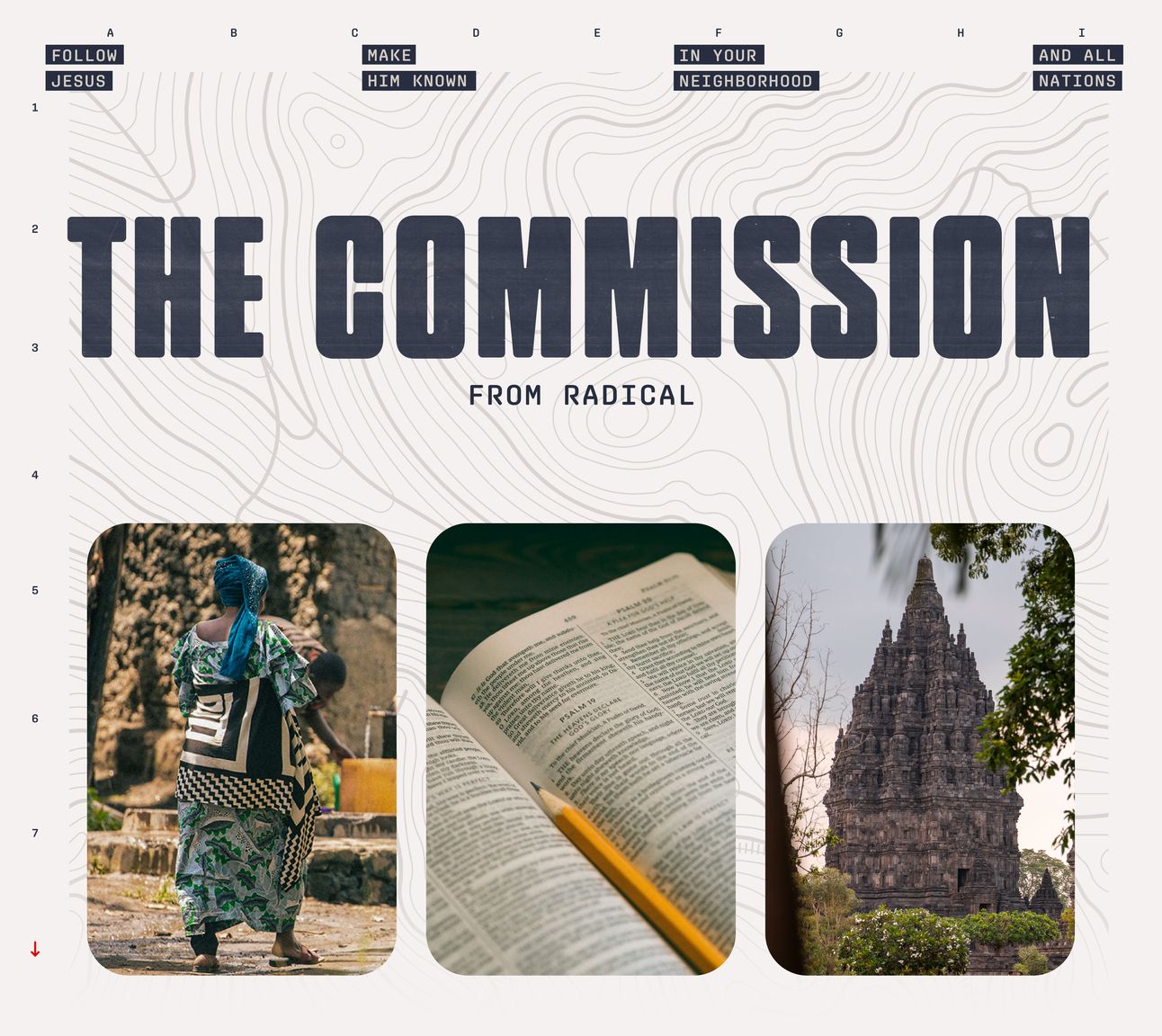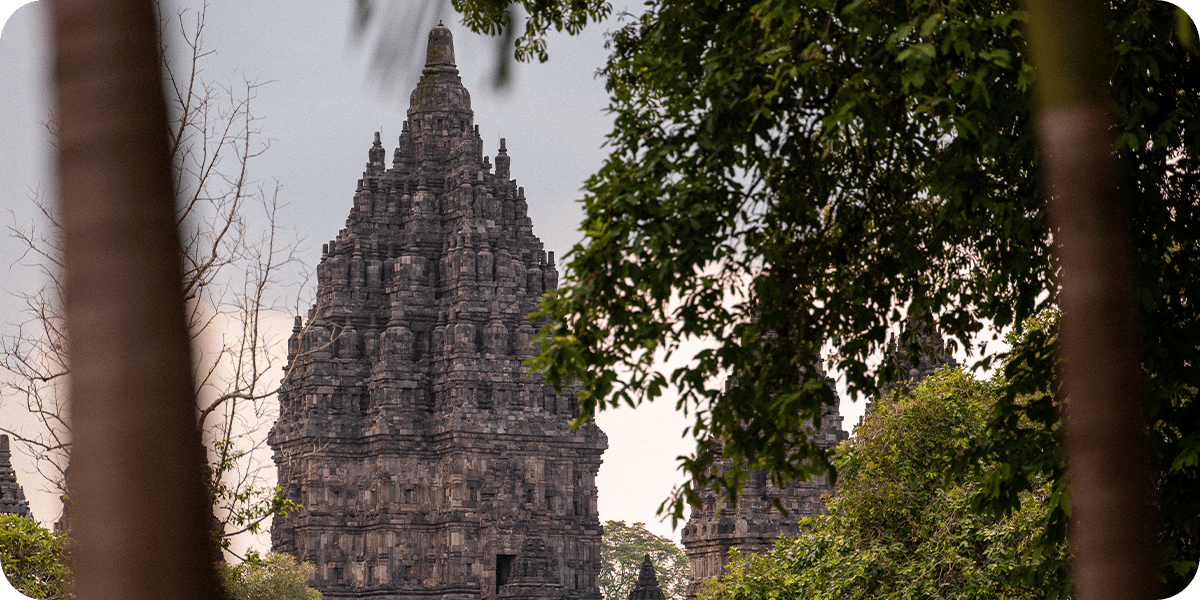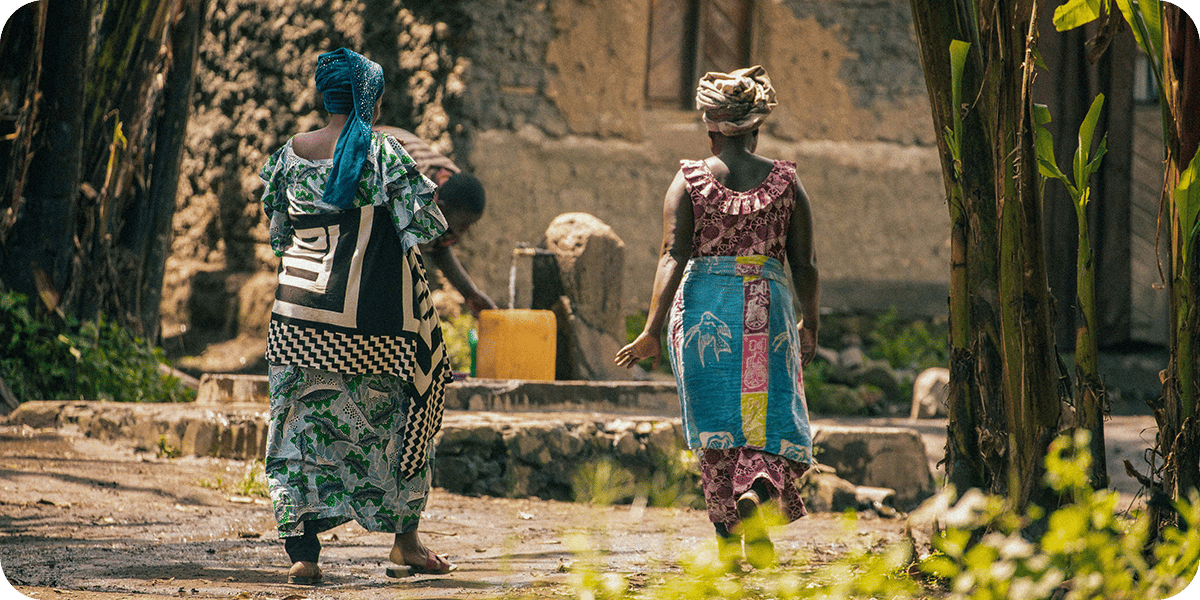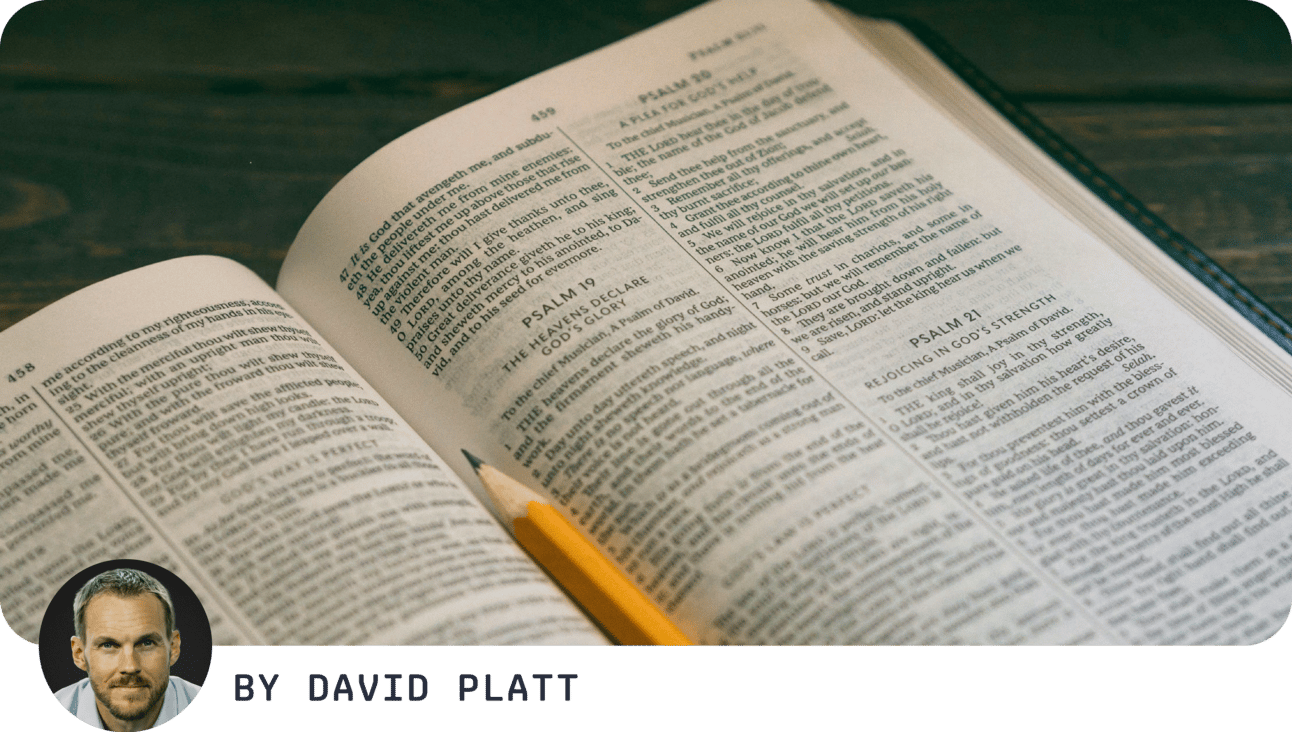- The Commission
- Posts
- Issue #20: We’ve done this 20 times now 🙌🏼
Issue #20: We’ve done this 20 times now 🙌🏼
Here’s to many more!

Welcome to the 20th edition of The Commission. It’s been about 10 months since we started this small project to bring you behind the scenes to the gospel work around the world as we strive to make Jesus known everywhere, together. Our hope is that each newsletter you’ve received so far has drawn you closer to Jesus, softened your heart for the lost, and moved you to take action. Thank you for being here.
In today’s edition:
A missionary’s hope for Indonesia
The difference between Bible reading and Bible meditation
They’re facing significant hunger—both physical and spiritual
“The Word of God apart from the Spirit of God will be of no use to you. If you cannot understand a book, do you know the best way to reach its meaning? Write to the author and ask him what he meant. If you have a book to read and you have the author always accessible, you need not complain that you do not understand it. The Holy Spirit has come to abide with us forever. Search the Scriptures, but cry for the Spirit’s light and live under his influence.”
🇮🇩 Ground Floor: Q&A with a Missionary in Indonesia

When David visited a seminary on a remote island in northeastern Indonesia, the president of the seminary told him, “Come here, and serve in Indonesia.”
A year later, David, his wife, and their two children came with only two suitcases per person to start their lives as missionaries in Indonesia. Twenty-three years later, David and his wife are still working with various ministries, churches, and teams, equipping them to share the gospel with the unreached, make disciples, and plant churches throughout Indonesia. Recently, we talked to David in our latest Hard to Reach: Indonesia episode, and he shared what the Church looks like in a country that’s home to various religions and beliefs.
#1 What is the state of religion in Indonesia?
You're going to encounter pretty much all of the major world religions right here within one country.
Various world religions have come to the shores of Indonesia at various stages in its history: Islam, Buddhism, Hinduism, traditional Chinese religions, Christianity, indigenous religions, animism, and mysticism. You’re going to find a lot of agnostic beliefs or atheists.
The majority religion is Islam—about 90% of the country. However, you're going to find a lot of nominalism for all of those religions.
#2 What are some of the difficulties that come with sharing the gospel with Indonesians?
The Indonesian government mandates that every citizen declares or embraces one of these world religions, and it's listed on their national identity card. So, many people look at their religion as being more than just a set of spiritual practices or values.
It's also a means of identity. They identify with this particular social class—this collection of people. Indonesia is a culture in a context where there's a lot of value placed on relationships and community.
So, for people to embrace a new religion, a new faith, a new idea of any sort, oftentimes, it entails facing the risk of being ostracized or losing that deep connection with their local community.
#3 How have you seen God moving in remote areas of Indonesia?
Some of our national partners were serving in a remote location of Indonesia and shared the gospel in a home there. The woman in the home was so unhappy that she tried to poison the national partner, his wife, and his entire family. She put poison in their drinks, and only the wife of our national partner drank the drink. She got very sick and almost died, spending months in recovery from this poisonous drink. Most people die when they drink this drink, but, by the Lord's favor and grace, she survived and recovered.
After that happened, the woman who had poisoned her was back in that same city visiting some family, and she herself was sick and on her deathbed. Our national partner, who was poisoned by her, went to visit her, prayed over her, encouraged her, and said that she looked forward to a time when she could visit her village and be with her family again.
This woman—who had once poisoned a believer—asked for forgiveness for what she had done. I see the gospel power through the work of the Spirit moving in both directions. There's the national partner who's there visiting someone who tried to kill her, praying for her, loving her, ministering to her. At the same time, you have this person who's lost and being so moved by that act that she herself is asking for forgiveness for what she had done.
#4 What is your hope for the Church in Indonesia?
I hope for one family, one Indonesia, seeking God's glory displayed in Christ through multiplying disciples and healthy churches seeking God's glory displayed in Christ. That's what we're praying for and what we're aiming toward—leveraging every resource in our trust to get to every pocket of lostness and every unreached people group and to see churches planted where disciples can be made and where people can reach full maturity in Christ.
As we hope to see the gospel continue to spread in Indonesia, we can pray the same prayer as David—that “the name of Jesus would be proclaimed to the lost, and cherished and embraced within the churches present there.”
—Selah Lipsey
🇨🇩 Decades after, hunger and persecution persist

The Details: The Democratic Republic of the Congo (DRC) is facing the world’s largest hunger crisis after decades of civil war. In the eastern part of the country, there is violent persecution against Christians by Islamic militants. They have targeted pastors and church leaders, kidnapping believers to try to force them to recant their faith.
The Takeaways: As one out of three Congolese face significant hunger, pray that God may meet both the physical and spiritual needs within the DRC. As Christians face violence, persecution, and suffering, pray that God will protect them and that they may stand firm in their faith.
📖 Enjoying Every Bite: An Invitation to Bible Meditation

This is an adapted excerpt from David’s new book: How to Read the Bible.
There is a significant difference between Bible reading and Bible meditation.
Reading the Bible can involve merely seeing—or even saying out loud—the words on a page without pausing to ponder what they mean. Too often, the goal of Bible reading can become simply checking off a box, even seeing how quickly we can get our reading done in order to move on to something else. If we’re not careful, we can approach Bible reading the way we go through a fast-food restaurant. We’re focused on getting in and out, and our expectations for food quality are fairly low.
Enjoying Every Bite
But meditation is different. Meditating on the Bible involves thinking deeply about what we’re reading and reflecting prayerfully on what it means. It’s more like sitting down for a fine meal. Your focus is on enjoying every bite because you know this food will not just strengthen you; it will satisfy you.
God calls us not to just read his Word but to meditate on it day and night. The book of Psalms begins with these words:
Blessed is the man
who walks not in the counsel
of the wicked,
nor stands in the way of sinners,
nor sits in the seat of scoffers;
but his delight is in the law of the LORD,
and on his law he meditates
day and night.
He is like a tree
planted by streams of water
that yields its fruit in its season,
and its leaf does not wither.
In all that he does, he prospers.
We see a similar picture in Joshua, where God gives him the following instructions:
This Book of the Law shall not depart from your mouth, but you shall meditate on it day and night, so that you may be careful to do according to all that is written in it. For then you will make your way prosperous, and then you will have good success.”
Do you want to experience a fruitful life that matters in this world and the world to come? Do you want to experience true, lasting prosperity and success? If so, then take the time to meditate on God’s Word day and night.
A Plan to Get Started
So, where do you start? My first encouragement is for you to identify a daily Bible reading plan. Instead of just opening the Bible to different places on different days, I strongly encourage you to find an intentional way to walk through all of God’s Word. Multitudes of options exist that are used by other followers of Jesus, or you can create one on your own.
Personally, I use a Bible reading plan developed centuries ago by a man named Robert Murray M’Cheyne. I read two chapters a day (usually one from the Old Testament and one from the New Testament or the Psalms), so over the course of two years, I will read through the Old Testament once and the New Testament and Psalms twice.
Years ago, Heather and I started using this plan in our time alone with God each day, and it revolutionized not only our individual relationships with God but also our relationship with each other. Now, many of our kids do it with us, and our church family has used it as well. It is so helpful to experience community with others who are walking with God together through his Word.
Help from Other Believers
I would also encourage you to get a good Study Bible that uses an accurate translation of Scripture. A Study Bible contains notes for different verses that help you understand the context and meaning of what you’re reading. It’s wise for us to receive counsel from brothers and sisters in Christ who have studied the history, culture, and original languages of the Bible far more in-depth than we have.
Regardless of which Bible translation or reading plan you might use, set aside a regular time in your day—or multiple times in your day (morning and evening, as Psalm 1:2 talks about)—to meditate on God’s Word.
📍 Attention Worthy
Sometimes we wonder why prayer can seem like such a struggle. Could it be that we don’t actually expect prayer to do much? Jeremy Linneman shares his own story of feeling spiritually before recognizing the blessings and effectiveness of prayer.
Christians and Muslims both believe there is one God, but do they worship the same God? Here’s a brief explanation of why the answer is “no” and how the identity of Jesus is crucial to answering this question.
Does the teaching of Scripture ever make you uncomfortable? Does following Jesus ever seem hard? If not, then maybe you’ve subscribed to a version of Christianity that is tailored to your comfort.
THIS WEEK’S CONTRIBUTORS:
Selah Lipsey, Steven Morales, Jairo Namnún, David Platt, Camille Suazo
MAKE YOUR LIFE COUNT!